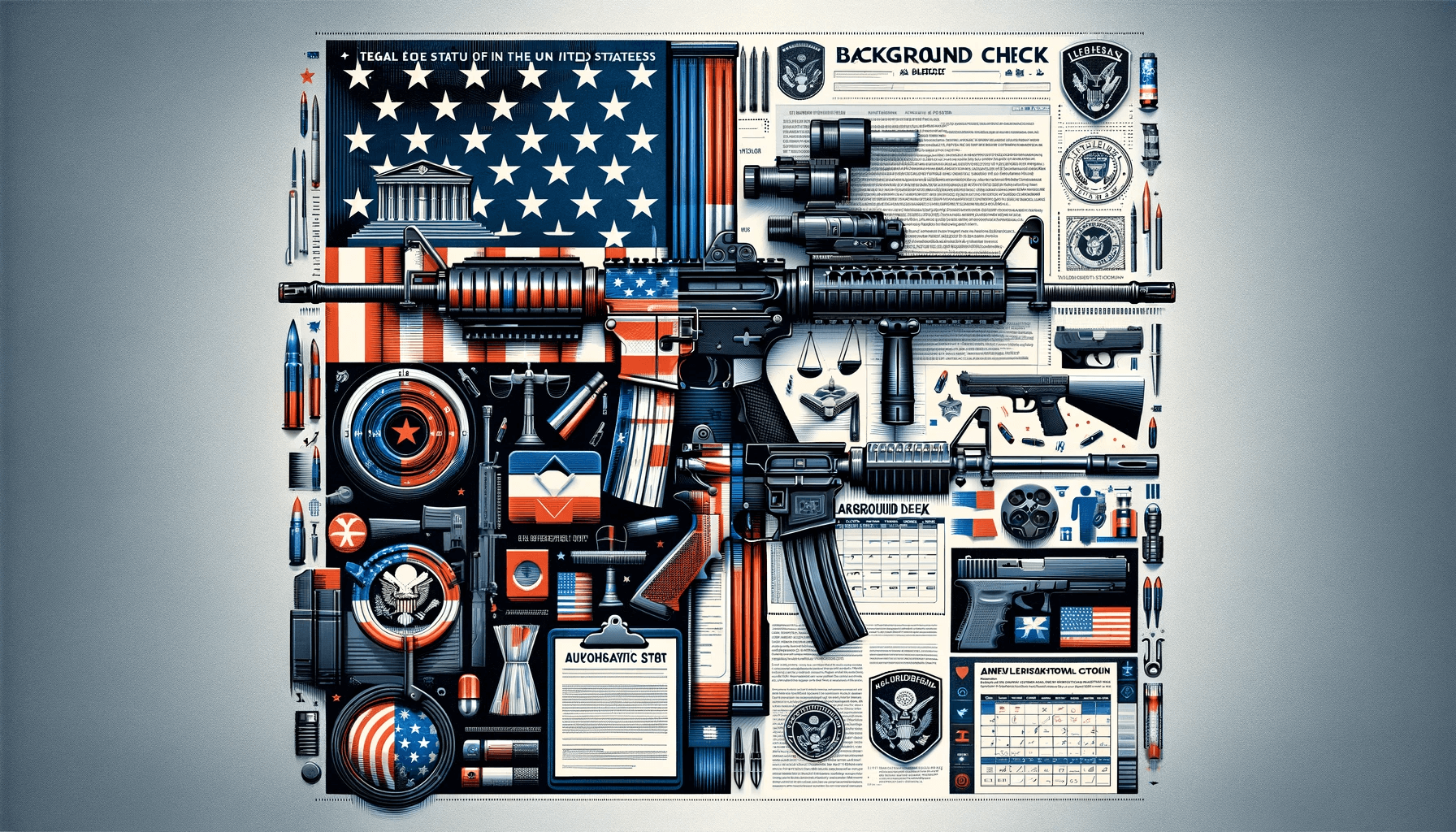Hello readers! Today we’re unraveling the often-misunderstood topic of automatic weapons legality in the United States. This is a complex issue that intertwines federal laws, historical amendments, and state-specific regulations. So, let’s dive in and demystify the legalities surrounding automatic weapons in the U.S.
What Qualifies as an Automatic Weapon
Firstly, it’s crucial to understand what constitutes an automatic weapon. Often referred to as machine guns, these firearms are designed to fire more than one bullet with each trigger pull. This is in contrast to non-automatic weapons, which require a trigger reset for each shot. Automatic weapons have been subject to regulation under several federal laws, including the National Firearms Act (NFA) of 1934, the Gun Control Act (GCA) of 1968, and the Firearm Owners Protection Act (FOPA) of 1986.
Ownership Restrictions
Owning an automatic weapon in the U.S. is legally possible, but there are stringent requirements. To legally own a machine gun, you must:
- Not be a “prohibited person” (including felons, fugitives, or those convicted of crimes punishable by more than a year in prison).
- Be at least 21 years old to purchase from a current owner.
- Be a legal U.S. resident and legally eligible to purchase a firearm.
- Pass a BATFE background check, which can take 8 to 10 months.
- Pay a $200 transfer tax for each machine gun.
The Firearm Owners Protection Act and Hughes Amendment
The Hughes Amendment to the FOPA of 1986 is a critical piece of legislation affecting automatic weapons. It closed the NFA registry to new machine guns, meaning private citizens cannot register new machine guns post-May 19, 1986. However, transferring registered guns made before this date is still legal. This has led to a significant increase in the value of these pre-1986 machine guns.
Owning a Machine Gun: The Process
Owning a machine gun involves several steps:
- Locate and purchase a legally registered pre-1986 machine gun.
- Submit an ATF Form 4 application to the NFA division of the ATF.
- Await federal government approval, which can take over a year.
- Be aware of state and local laws, which can vary significantly.
FFL Ownership Route
For those with a Federal Firearms License (FFL), the process of owning a machine gun can be faster and cheaper. FFL holders can purchase or make machine guns regardless of the manufacturing date, subject to specific FFL types and additional requirements, such as obtaining a CLEO letter for buying a machine gun from another FFL.
Federal Laws Overview
Several federal laws govern automatic weapons:
- National Firearms Act (NFA): Mandates registration and imposes a tax on automatic weapons.
- Hughes Amendment and FOPA: Restrict the production and sale of new machine guns for civilian use post-1986.
- Bureau of Alcohol, Tobacco, Firearms, and Explosives (ATF): Enforces these laws, requiring detailed compliance from prospective owners.
State and Local Regulations
It’s essential to remember that state and local regulations can also influence machine gun ownership. These vary across jurisdictions, with some states implementing bans or restrictions.
Conclusion
Owning an automatic weapon in the U.S. is legal under specific conditions and federal regulations. The process involves thorough background checks, compliance with various laws, and significant financial investment. For those interested, it’s crucial to understand these legal frameworks and ensure full compliance to lawfully own an automatic weapon.
Whether you’re a gun enthusiast, a legal professional, or simply curious, understanding the complexities of automatic weapon ownership in the U.S. is crucial in navigating this heavily regulated terrain.









Leave a Reply